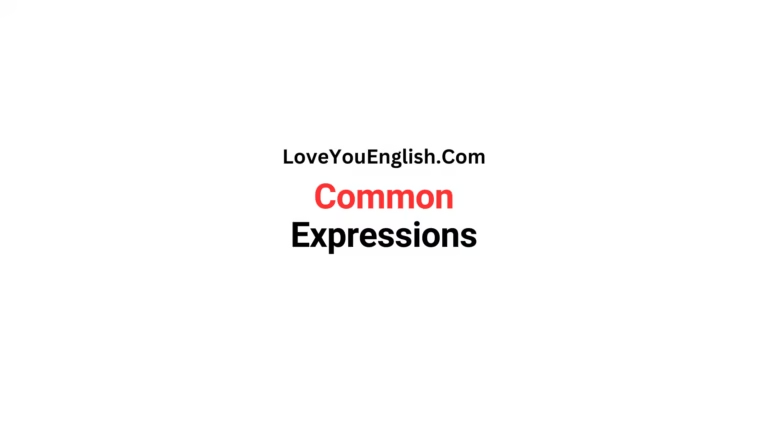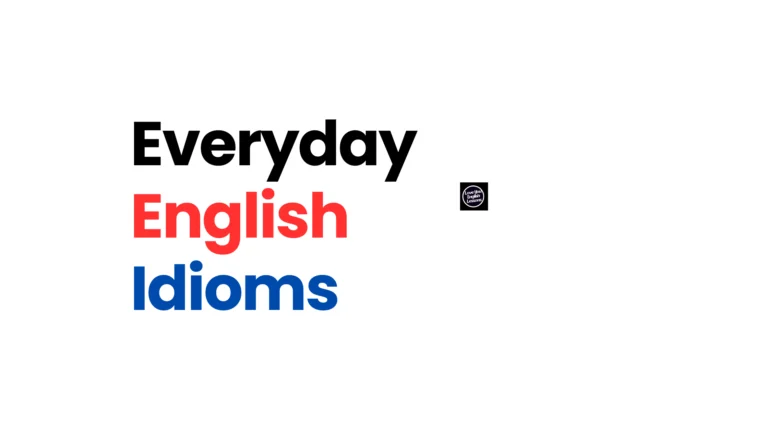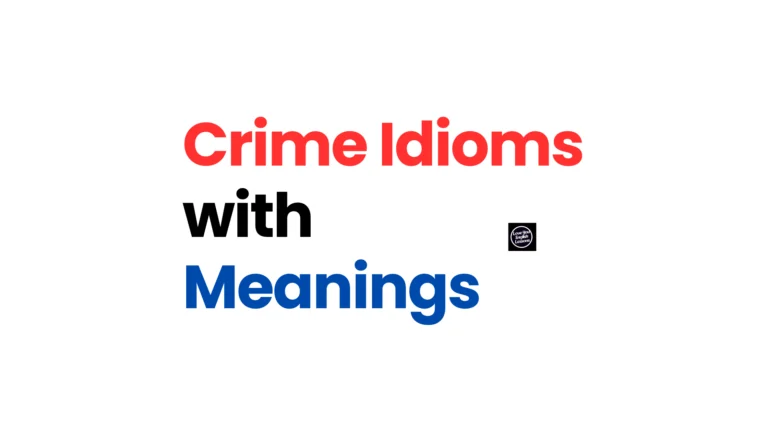Entertainment is a big part of our daily life. People talk about movies, music, TV shows, games, social media, concerts, and online videos every day.
Learning English words and phrases related to entertainment helps learners understand conversations, express opinions, and enjoy media content more confidently.
This blog post, “200 Entertainment Words and Phrases in English,” is specially created for students, beginners, and ESL learners.
In this post, you will find useful and commonly used English words and phrases related to entertainment.
These words will help you talk about movies, music, shows, hobbies, and leisure activities in everyday English conversations.
Table of Contents
ToggleMovies and TV Shows
- Actor
- Actress
- Director
- Producer
- Screenwriter
- Script
- Plot
- Scene
- Dialogue
- Genre
- Comedy
- Drama
- Thriller
- Horror
- Action
- Romance
- Science fiction
- Fantasy
- Mystery
- Documentary
- Animation
- Cartoon
- Episode
- Season
- Series
- Cast
- Crew
- Trailer
- Premiere
- Review
Music
- Singer
- Songwriter
- Band
- Album
- Lyrics
- Melody
- Tune
- Rhythm
- Chorus
- Verse
- Instrument
- Guitar
- Piano
- Drums
- Violin
- Bass
- Microphone
- Concert
- Music video
- Playlist
Theater and Performances
- Play
- Stage
- Curtain
- Audience
- Ticket
- Performance
- Show
- Rehearsal
- Monologue
- Dialogue
- Dance
- Ballet
- Opera
- Stand-up comedy
- Mime
- Circus
- Spotlight
- Costume
- Makeup
- Props
Games and Gaming
- Player
- Video game
- Board game
- Card game
- Controller
- Console
- Virtual reality
- Multiplayer
- Puzzle
- Strategy
- Role-playing game
- Arcade
- Score
- Level
- Mission
- Challenge
- Bonus
- Cheat code
- Leaderboard
- Tournament
Books and Literature
- Novel
- Author
- Publisher
- Chapter
- Title
- Character
- Hero
- Villain
- Fairy tale
- Myth
Sports and Outdoor Activities
- Sport
- Athlete
- Match
- Game
- Coach
- Team
- Competition
- Championship
- Trophy
- Medal
- Fan
- Stadium
- Scoreboard
- Goal
- Referee
- Spectator
- Practice
- Training
- Victory
- Defeat
Travel and Adventure
- Tourist
- Tour guide
- Destination
- Ticket
- Passport
- Souvenir
- Cruise
- Adventure
- Vacation
- Holiday
- Resort
- Hotel
- Itinerary
- Camping
- Hiking
- Wildlife
- Road trip
- Journey
- Map
- Guidebook
Social Media and Online Entertainment
- Post
- Like
- Comment
- Share
- Follow
- Trending
- Meme
- Video
- Livestream
- Influencer
- Podcast
- Channel
- Subscribe
- Viral
- Hashtag
- Filter
- Reel
- Blog
- Vlog
- Streaming
Food and Dining Out
- Chef
- Menu
- Cuisine
- Dish
- Appetizer
- Main course
- Dessert
- Beverage
- Buffet
- Fine dining
- Cafe
- Restaurant
- Waiter
- Waitress
- Reservation
- Takeaway
- Snack
- Recipe
- Feast
- Cocktail
Celebrations and Events
- Party
- Wedding
- Birthday
- Anniversary
- Festival
- Parade
- Carnival
- Fireworks
- Dance floor
- DJ
- Invitation
- Guest
- Cake
- Toast
- Gift
- Decorations
- Balloons
- Confetti
- Music
- Fun
Entertainment Phrases
Movies and TV Shows
- “Who is your favorite actor?”
- “I love watching comedies.”
- “This movie has a great plot.”
- “The trailer looks amazing!”
- “Let’s binge-watch the new series.”
- “The ending was so unexpected.”
- “This is a critically acclaimed movie.”
- “The cast did an excellent job.”
- “The dialogue was very funny.”
- “I can’t wait for the next episode!”
Music
- “What’s your favorite song?”
- “This melody is so catchy.”
- “The lyrics are beautiful.”
- “I’m learning to play the guitar.”
- “The band performed live last night.”
- “This album is a masterpiece.”
- “The rhythm makes me want to dance.”
- “I created a playlist for the party.”
- “Her voice is incredible.”
- “Let’s go to a concert this weekend.”
Theater and Performances
- “Have you ever seen a live play?”
- “The stage design was brilliant.”
- “I got tickets to the ballet.”
- “The audience gave a standing ovation.”
- “The costumes were so colorful.”
- “He performed a monologue beautifully.”
- “The rehearsals are every evening.”
- “The spotlight was on the main character.”
- “The curtain dropped after the final scene.”
- “I enjoy stand-up comedy shows.”
Games and Gaming
- “What’s your favorite video game?”
- “I reached the final level!”
- “The graphics in this game are amazing.”
- “Do you prefer single-player or multiplayer games?”
- “Let’s play a board game tonight.”
- “She scored the highest in the tournament.”
- “This puzzle game is very challenging.”
- “I need a new gaming controller.”
- “We spent hours at the arcade.”
- “I got a bonus in the last mission.”
Books and Literature
- “This novel is a bestseller.”
- “Who is the author of this book?”
- “I’m on the last chapter.”
- “The characters are so relatable.”
- “It’s a classic fairy tale.”
- “The hero’s journey was inspiring.”
- “I love reading myths and legends.”
- “This book has an interesting title.”
- “The villain was very clever.”
- “The publisher released it last year.”
Sports and Outdoor Activities
- “What sport do you like watching?”
- “Our team won the match!”
- “He’s a professional athlete.”
- “The coach gave us some tips.”
- “The competition starts tomorrow.”
- “We trained hard for the championship.”
- “The stadium was packed with fans.”
- “I’m practicing for the tournament.”
- “The referee made a good call.”
- “The victory celebration was amazing.”
Travel and Adventure
- “What’s your dream travel destination?”
- “I bought a ticket for the cruise.”
- “We had a great time on our vacation.”
- “The tour guide was very knowledgeable.”
- “I packed my bags for the journey.”
- “Camping under the stars was magical.”
- “We followed the hiking trail.”
- “I bought a souvenir from the market.”
- “The wildlife safari was unforgettable.”
- “Our road trip was full of adventures.”
Social Media and Online Entertainment
- “I posted a picture on Instagram.”
- “This video is going viral!”
- “Can you share the link with me?”
- “She’s a popular social media influencer.”
- “I love listening to podcasts while driving.”
- “What’s your favorite YouTube channel?”
- “The livestream starts at 8 PM.”
- “This meme made me laugh out loud!”
- “Use the hashtag to join the trend.”
- “I subscribed to their channel last week.”
Food and Dining Out
- “What’s your favorite dish?”
- “The menu has so many options.”
- “Let’s try this new restaurant.”
- “The chef is very talented.”
- “This dessert tastes amazing!”
- “We made a reservation for dinner.”
- “Can I get this as a takeaway?”
- “The buffet had a variety of food.”
- “This recipe is easy to follow.”
- “The cocktail was refreshing.”
Celebrations and Events
- “I’m planning a birthday party.”
- “The decorations look beautiful.”
- “Let’s invite all our friends.”
- “We danced all night at the wedding.”
- “The festival was full of colors.”
- “I bought balloons and confetti.”
- “The fireworks lit up the sky.”
- “We raised a toast to celebrate.”
- “The DJ played great music.”
- “The cake was delicious!”
Other Fun Phrases
- “Let’s watch a movie together.”
- “What’s trending on social media?”
- “I’m in the mood for some music.”
- “This game is so addictive!”
- “The theater was completely sold out.”
- “I discovered a new book series.”
- “Do you want to go to the circus?”
- “I love collecting movie posters.”
- “The magician’s tricks were mind-blowing.”
- “We had a karaoke night at home.”
Movies and TV Shows (part-2)
- “What’s the best movie you’ve ever seen?”
- “I couldn’t stop laughing at that comedy.”
- “That twist in the story was unbelievable!”
- “Do you prefer action movies or dramas?”
- “Let’s watch the next season together.”
- “The special effects were incredible.”
- “This show is perfect for binge-watching.”
- “The lead actor gave an award-winning performance.”
- “Have you read reviews about this movie?”
- “The director’s work is always impressive.”
Music (part-2)
- “Do you like live music or recorded songs?”
- “I can’t get this song out of my head!”
- “The band’s new album just dropped.”
- “This song has such deep lyrics.”
- “Can you recommend a good playlist?”
- “The concert was completely sold out.”
- “The bass in this track is so powerful.”
- “What’s your go-to karaoke song?”
- “Her performance gave me chills.”
- “This song always lifts my mood.”
Theater and Performances (part-2)
- “I love watching plays in small theaters.”
- “The actor forgot his lines but recovered well.”
- “The dance performance was breathtaking.”
- “Can we sit closer to the stage?”
- “The costumes brought the characters to life.”
- “I enjoy musicals more than regular plays.”
- “Have you ever been to an opera?”
- “The circus had so many amazing stunts.”
- “The mime artist was incredibly talented.”
- “The backstage crew works so hard.”
Games and Gaming (part-2)
- “Have you tried this new strategy game?”
- “I love solving puzzles in my free time.”
- “My favorite part of the game is unlocking new levels.”
- “Can you beat my high score?”
- “This game requires a lot of teamwork.”
- “Let’s have a family board game night.”
- “He won the tournament with ease.”
- “The graphics look so realistic!”
- “I’m stuck on this level; any tips?”
- “Playing games helps me relax.”
Books and Literature (part-2)
- “This book is a real page-turner!”
- “I’m hooked on this mystery novel.”
- “Do you prefer e-books or printed books?”
- “This author writes very relatable stories.”
- “I couldn’t put the book down until I finished it.”
- “What’s the last book you read?”
- “This chapter has a very emotional ending.”
- “I love the illustrations in this book.”
- “Have you read the sequel yet?”
- “This is my favorite book of all time.”
Sports and Outdoor Activities (part-2)
- “Who’s your favorite athlete?”
- “I love watching live matches at the stadium.”
- “The coach gave a very inspiring speech.”
- “The team trained really hard for the finals.”
- “The referee made a controversial decision.”
- “We played a friendly match with our neighbors.”
- “What’s the score right now?”
- “That goal was absolutely amazing!”
- “They celebrated their victory with fireworks.”
- “The fans were cheering loudly for their team.”
Travel and Adventure (part-2)
- “What’s the most beautiful place you’ve visited?”
- “The view from the top was worth the hike.”
- “I need to pack my bags for the trip tomorrow.”
- “We stayed at a cozy little resort.”
- “The cruise had so many fun activities on board.”
- “This souvenir will remind me of the trip forever.”
- “We followed the map to find the hidden waterfall.”
- “I always keep a journal during my travels.”
- “The tour guide shared so many interesting facts.”
- “I can’t wait to plan our next adventure.”
Social Media and Online Entertainment (part-2)
- “This influencer’s content is so creative!”
- “I uploaded a new video to my channel today.”
- “That meme made me laugh for hours.”
- “What’s trending on Twitter right now?”
- “This reel went viral overnight.”
- “The podcast has some really inspiring guests.”
- “Don’t forget to like, comment, and subscribe!”
- “Do you listen to podcasts regularly?”
- “She posted some beautiful photos of her trip.”
- “The livestream was so interactive and fun.”
Food and Dining Out (part-2)
- “The restaurant has a great ambiance.”
- “This dish is their specialty.”
- “Can I see the menu, please?”
- “Let’s order dessert to finish the meal.”
- “The chef’s presentation is incredible.”
- “This drink is so refreshing on a hot day.”
- “Do you prefer dining out or cooking at home?”
- “The buffet had so many options to choose from.”
- “What’s the best dish here?”
- “Let’s try this place; I’ve heard great reviews.”






